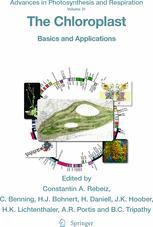

Most ebook files are in PDF format, so you can easily read them using various software such as Foxit Reader or directly on the Google Chrome browser.
Some ebook files are released by publishers in other formats such as .awz, .mobi, .epub, .fb2, etc. You may need to install specific software to read these formats on mobile/PC, such as Calibre.
Please read the tutorial at this link: https://ebookbell.com/faq
We offer FREE conversion to the popular formats you request; however, this may take some time. Therefore, right after payment, please email us, and we will try to provide the service as quickly as possible.
For some exceptional file formats or broken links (if any), please refrain from opening any disputes. Instead, email us first, and we will try to assist within a maximum of 6 hours.
EbookBell Team

4.0
76 reviewsThe world population is expected to increase to 9 billion by the year 2050 which will generate food and fuel shortages. Since it will be difficult to increase the land area under cultivation without serious environmental consequences, higher productivity for biomass is required. Improvement in photosynthetic efficiency would require increased knowledge and deeper understanding of :(a) the biosynthesis of photosynthetic membrane components such as hemes, chlorophylls, carotenoids, quinones, and lipids; (b) photosynthetic membrane apoprotein biosynthesis; (c) the biosynthesis and regulation of the assembly of pigment-apoprotein complexes; and (d) the complexities of carbon sensing, biosynthesis and allocation. These goals may be accomplished by bioengineering of chloroplasts with higher photosynthetic efficiency and superior adaptation to various stresses and/or alteration of the kinetic properties of the CO2-assimilating enzyme, Rubisco. Advances towards this goal are addressed in this volume that will foster cooperation between biochemists and molecular biologists, scientists involved in photosynthesis research and biotechnologists involved in plant and plastid genomics and transformation. We envision future research to focus attention on "Chloroplast Bioengineering" as an integrated novel field of research. This book is designed for graduate students and researchers in chlorophyll metabolism, integrative plant biology, plant physiology, plant biochemistry, plant molecular biology, biotechnology, bioenergy and biofuels.